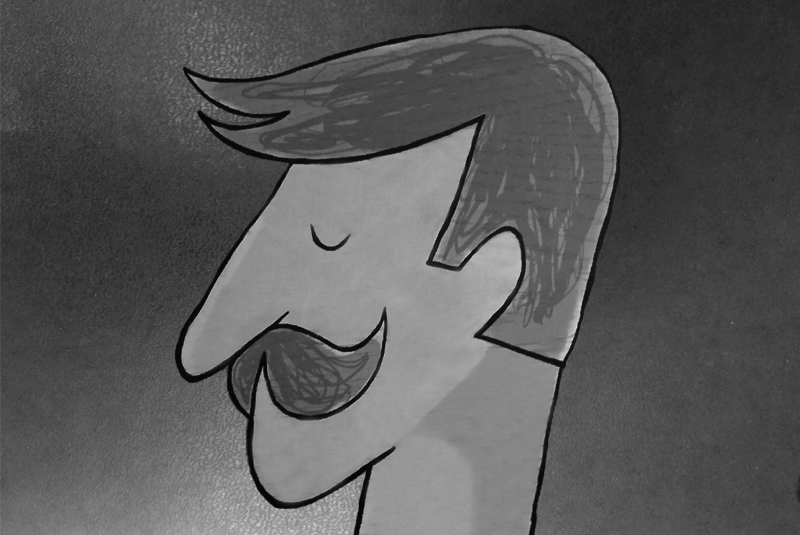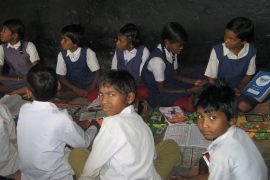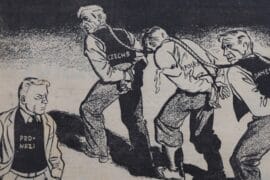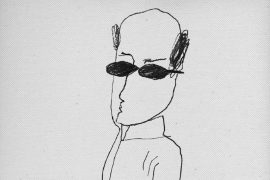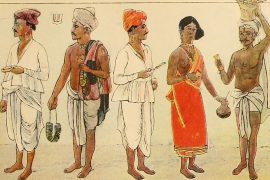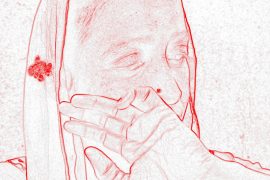‘Iron’ Mike Tyson, one of the most popular pugilists in the history of the game, yet most notorious on and off the ring, was once asked by a journalist how he managed to stay at the top.
Being the incumbent heavy weight champion of the world then, his moves were subjected to intense scrutiny in slow motion by his opponents, challengers, coaches, experts, and aficionados around the world. Weaknesses in his game were identified, analysed and brilliant counteroffensive strategies were devised by challengers.
But Tyson sustained his winning streak with brute force, devastating opponents with his lethal knockout punches. It is hard to get to the top but even harder to remain there. To the journalist’s question, Mike Tyson unwittingly replied:
Everyone has a game plan until they get punched in the face.
Tyson’s response had an unmistakable sarcasm with megalomaniacal undertones, but it also has deep and profound philosophical meaning, true to human lives. In this theatre of life, we conjure up grandiose plans for ourselves and make roadmaps for a glorious future, dissociated from the present and distant in time, wishing it to be within grasp and just around the corner.
The relentless pursuit for its consummation is invariably linked to meticulous planning, commitment, and discipline. These plans mostly come at the cost of little sounds and bright colors of life that pass under our nose – unseen and unheard. Competition and rivalry set in, human beings are perceived as means to ends, pawns to be sacrificed while contemplating various permutations and combinations en route to glory, to the coveted kingdoms of power, prestige, wealth, and fame.
Suddenly, while cruising comfortably on the paths to success, while weaving dreams of bliss, you get a punch in the face – a job loss, a deadly disease, a crippling accident, a death, or something else – that leaves you frozen and petrified in the face of such unexpected terror. A stark realisation sets in and the dreams are crushed, the glory fallen and hope, which is the “helmet of salvation” and matrix of life, is crushed under the yoke of an unsolicited and inexorable visitor, known under the moniker, fate.
T.S Eliot, the mercurial English poet warns mankind in his brilliant poem, “The Love Song of J. Alfred Prufrock,” about a mundane life filled with frivolous endeavors. He writes, “I have measured out my life with coffee spoons,” alluding to a life devoted to chasing mirages, only to witness unpredictability and uncertainties reigning supreme and precious lives fading as ephemeral mists in the heat of bitter realities.
This inexplicable program of nature is best expressed in The Holy Bible in the Book of Proverbs 16:9, “A man’s heart plans his course, but the Lord determines his steps.” With a thousand eyes, man penetrates the depths of life, and to his dismay finds, mostly, a crop of inextinguishable regret waiting at its end.
Daniel Siegal, the eminent professor of psychiatry at the UCLA School of Medicine, prescribes a mode of mental conditioning called “Temporal Integration.” It is a predisposition of the mind to the possibility of occurrence of uncertainties and vagaries of life as normal. In his model, humanity’s longing for certainty, balance, permanence, and immortality is integrated into the inescapable reality of transience, chaos, and mortality.
This acceptance of the irredeemable nature of life enables one to be composed and helps cope with unfortunate incidents in life with relative equanimity and poise. In ancient Greece, around third-century B.C., Zeno of Citium, founded the Hellenistic school of philosophy of “Stoicism.”
Stoicism, which regards indifference to pleasure and pain as the loftiest of virtues, teaches that training the mind to achieve a miraculous balance of emotions at the prospect of high and low vicissitudes of fortune is inevitable to survive on the tortuous path to Eudaimonia (happiness). An iteration of stoic thought is found in the “Meditations” of Marcus Aurelius, where the great Roman emperor asserts:
You have power over your mind – not outside events. Realise this and you will find strength.
One of the fascinations of watching a game, a sport or a horror/action movie is the possibility of suspense and uncertainty of outcomes. Possibility excites and pleasure kills. When disaster strikes, it is important to distinguish between reaction and response behavioural patterns.
Many tend to react, which, according to the Nobel Laureate psychologist Daniel Kahneman, is essentially an impulsive and imprudent System I activity of the mind, commensurate with the evolutionary traits of fight or flight. In crisis situations, which do not entail an immediate threat to life and limb, he maintains that System II thinking is effectual and therefore, warranted.
In his “Thinking Fast and Slow,” Daniel Kahneman narrates System II thinking as slow, controlled, judicious and measured. Great leaders in all walks of life have demonstrated, in all ages, an uncanny ability to remain calm and unperturbed in the face of danger. This unnatural trait is often a key differentiator of success, and especially in contemporary world characterised by greater downside risks in corporate and social life, manifested as frequent economic recessions, geographical cataclysms, wars, and social unrest.
In the subsequent individual and social repercussions, resilience is a crucial virtue and should be rated much higher than any other skill sets.
It is interesting to note that fortuitous, uncontrollable events in life are not always accidental but incidental. These could be the slow evolutionary result of one’s actions over protracted periods of time, that takes shape in the form of indulgences in vices, flaws in character, external oppressions, and social and economic iniquities.
Kahlil Gibran, the great Lebanese American philosopher-poet, had encapsulated this nemesis through his immortal verses:
We choose our joys and sorrows long before we experience them.
Libertinism and Stoicism are antagonistic pairs; the former leads to Hedonism and the latter, to the elusive Eudaemonia or enlightenment to the need of contentment at the least.
The conflict between free will and hard determinism defines the mystery of human drama, a plot enacted by each, with imagination composed, without markers, signposts, and guides. Your greatest talents lie in combating the vagaries of life and the resilience to get back to your feet, once you are knocked down by an unwary punch in the face that comes out of nowhere.
-30-
Copyright©Madras Courier, All Rights Reserved. You may share using our article tools. Please don't cut articles from madrascourier.com and redistribute by email, post to the web, mobile phone or social media.Please send in your feed back and comments to [email protected]

